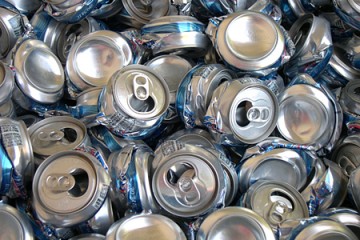- Name
- Alicia Samuels
- asamuels@jhu.edu
- Office phone
- 914-720-4635
- Name
- Barbara Benham
- bbenham1@jhu.edu
Alcohol policy experts and researchers from the Johns Hopkins Bloomberg School of Public Health who evaluated common university alcohol policies found that fewer than half of the approaches for reducing problematic alcohol consumption rated as "most effective."
Their review led to the development of an evidence-based approach that will enable colleges to analyze and update their campus alcohol policies.
Underage, binge, and risky drinking are serious problems on U.S. college campuses, and many student incidents involving injury and harm have an alcohol component. Each year in the U.S., an estimated 1,825 students ages 18–24 attending two- and four-year colleges die from alcohol-related causes.
Excessive alcohol consumption is associated with injuries, vulnerability to addiction, impaired neurocognitive function, cancer, and liver disease. Earlier research has shown that campuses with strong campus alcohol policies also had less binge drinking and fewer alcohol-related injuries.
The federal government requires colleges and universities to issue written campus alcohol policies, which include associated consequences for students and other college affiliates. This study is thought to be the first time that experts and researchers have rated the effectiveness of approaches typically included in campus alcohol policies.
For the study, published online in the journal Alcoholism: Clinical and Experimental Research, researchers assessed the campus alcohol policies of the 15 partner schools in the Maryland Collaborative to Reduce College Drinking and Related Problems, a network of schools whose presidents have agreed to work together with community partners to reduce alcohol use on their campuses and create environments, policies, and practices using data-driven approaches. Johns Hopkins University President Ronald J. Daniels and Robert L. Caret, chancellor of the University System of Maryland, serve as co-conveners for the collaborative.
"Our intent is to offer meaningful feedback for colleges in Maryland and across the U.S. to use to reduce excessive drinking and promote the well-being of their students," says study co-author Molly Mitchell, a senior program manager with the Center on Alcohol Marketing and Youth in the Bloomberg School and the alcohol policy program manager with the aforementioned collaborative. "For a campus alcohol policy to be effective, students must be aware of it, must be able to understand it, and it must include policies that evidence suggests will be effective at reducing the availability of alcohol."
The researchers asked a panel of 12 alcohol policy experts and university officials to rate 35 policies and 13 sanctions commonly included in campus alcohol policies based on criteria of accessibility, clarity, policy effectiveness, and sanctions effectiveness. The panel of experts included five alcohol policy researchers, three vice presidents of student affairs, and a campus alcohol and drug education officer. Based on their knowledge of published academic research and expert opinion, panelists determined that 17, or 49%, of the campus alcohol policies should be rated as "most effective."
The most effective policies were those determined by panelists as likely to comprehensively affect the physical and/or normative drinking environment on campus. Banning alcohol consumption in public places, for example, was classified as most effective because it restricts campus alcohol consumption and is likely to influence social norms around drinking. Other policies classified as most effective include:
- Banning alcohol at student recruitment events
- Prohibiting alcohol delivery to campus
- Prohibiting drinking games
- Mandatory ID checks at all campus events with alcohol
The researchers also found that accessibility of the campus alcohol policies could be improved, with many of the schools' policies spread across multiple locations on the schools' websites, and that the text in the campus alcohol policies across the 15 schools was overall considered very difficult to understand.
Sanctions effectiveness was more positive: on average, the colleges included four of the five sanctions considered to have the strongest deterrent effect, ranging from parental notification to dismissal from housing.
On average, the universities studied had six of the 17 most effective polices in place, indicating the potential for improvement in schools' ability to reduce alcohol problems on their campuses.
"Alcohol consumption can impede the health, safety, and academic success of students, and campus alcohol policies are the first line of defense against alcohol problems on campus," Mitchell said. "One way to prioritize the health and well-being of students is for colleges across the U.S. to replicate the research we did and regularly assess and improve their policies."
As part of this research, the study authors provided each school studied with the results of the assessment as well as specific recommendations for improvement in the school's written policies, and they will evaluate later this year whether the assessment influenced the school's campus alcohol policies.
Posted in Health
Tagged center on alcohol marketing and youth, binge drinking, alcohol









